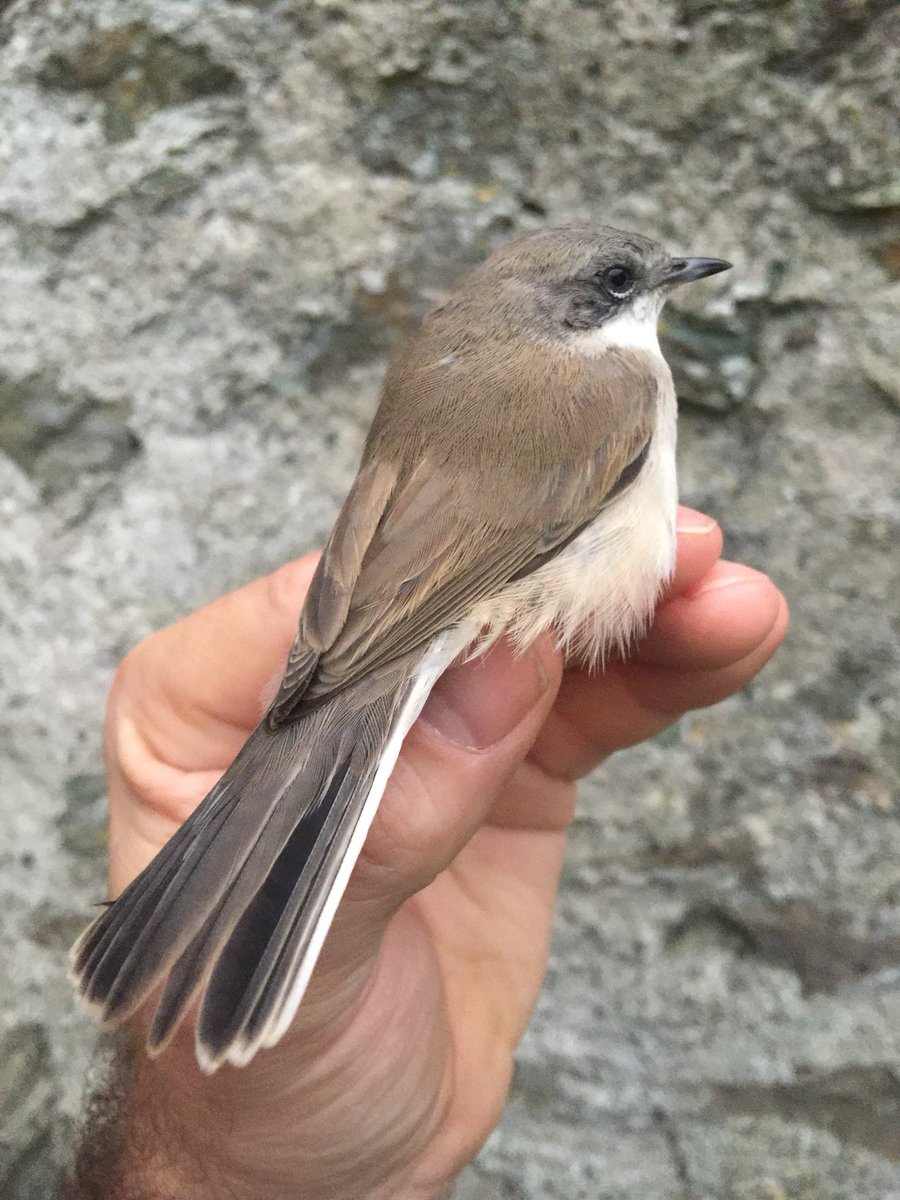The sea has been a little bit quiet of late, but returned with a vengeance today in a day of strong northerly winds, occasionally gusting around North-westerly. Perhaps the standout species was Mediterranean Gull, with a monstrous count of 170! To put that number into some context, its the first ever three figure count for Bardsey, annihilating the previous record (which was broken twice in 2016, with 83 on 23 Oct and 96 on 1 Nov). On all all-round brilliant day for Gulls, three Sabine's Gulls (this must be our best ever year for them by quite a margin), and a Little Gull brought the quality, while 3327 Kittiwakes, 1545 Black-headed Gulls and 122 Common Gulls provided the quantity. 778 Razorbills were the only other species moving in appreciable numbers, but the sea produced fantastic diversity today. A Great Northern Diver, a Sooty Shearwater, two Leach's Petrels, a Grey Heron, 13 Greenland White-fronted Geese, five Pale-bellied Brent Geese, two Teals, the first Pintail of the year (and 44th island record), five Common Scoters, a Grey Phalarope, five Arctic Skuas, four Great Skuas, three late Sandwich Terns and seven Guillemots ensured it was one of the most interesting seawatches of the year.
It was rather hard for the land to compete with such a stacked field, but it did its level best. A Woodcock at Cristin was the first of the autumn, while a Short-eared Owl was in the Wetlands, and possibly the same Barn Owl last seen two weeks ago reappeared at Ty Pellaf. Other scarcities included a Siberian Chiffchaff and a Bullfinch at the Obs, the former heard only, and four Long-tailed Tits in the Withies.
The author of this blog has something of an obsession with recording all six british thrushes in a day, having managed five out of the six more times than he cares to count! Yesterday we came mighty close, missing only Ring Ouzel. One of them was seen today, but typically it was the first time since the 25th that no Mistle Thrushes were on the island! The wait continues. Nontheless, a modest arrival of 30 Redwings, four Fieldfares and eight Song Thrushes were seen today. Finch passage was much decreased, but 57 Chaffinches, 13 Bramblings, 12 Greenfinches and three Siskins moved through. The only other migrants reaching double figures were 31 Starlings, 18 Goldcrests, 16 Robins and 15 Skylarks, with a thin scatter of other typical October migrants including two Merlins, a Water Rail, two Pied Wagtails, three "alba" Wagtails, a Blackcap, two Chiffchaffs and a Firecrest.

No comments:
Post a Comment